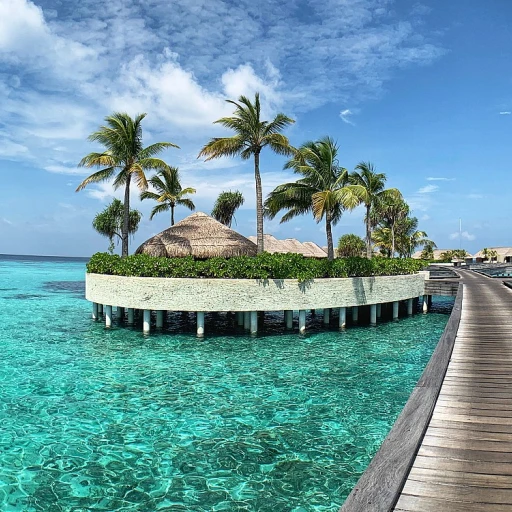Unveiling the Burden of Burnout: The Alarming Statistics
Professional Burnout: The Soaring Global Epidemic
In the relentless pursuit of success, the contemporary workforce is facing an unprecedented challenge: professional burnout. A study by Gallup found that a staggering 23% of employees reported feeling burned out at work very often or always, while an additional 44% felt burned out sometimes. This alarming statistic highlights the ubiquity of the issue and underscores the dire need for effective solutions.1
Decoding the Impact of Burnout on Well-Being and Productivity
Burnout takes a toll not only on personal health but also on professional efficacy. The World Health Organization (WHO) has recognized burnout as an occupational phenomenon, linking it to factors such as reduced efficacy and increased mental distance from one’s job.2 In the realm of economic repercussions, the Harvard Business Review estimates the annual cost of burnout to the global economy at $322 billion, corroborating the pressing need for interventions that target this epidemic.3
Embracing Mindfulness: A Glimpse Into a Solution
As we delve deeper into strategies for combatting burnout, mindfulness emerges as a beacon of hope. The mindful approach to stress reduction is rooted in the philosophy of present-moment awareness and non-judgmental acceptance. This contemplative practice is not just a fleeting trend, but a well-endorsed method recommended by numerous experts to alleviate the symptoms of burnout and promote overall well-being.
Mindfulness as Medicine: What the Experts Say
The Expert Consensus on Mindfulness in Combatting Burnout
As workplace pressures continue to escalate, professionals across the globe are turning towards mindfulness as an antidote to burnout. With a staggering 52% of workers feeling the effects of professional exhaustion, according to a recent Gallup poll, the exploration of mindfulness is not just a trend, but a necessity. Experts in psychology and occupational health are emphasizing mindfulness meditation as a profound therapeutic technique. Harvard Medical School likened mindfulness to a 'reset button' for the brain, which can lead to decreases in stress levels and enhancements in overall well-being.
Crucial Mindfulness Strategies Recommended by Professionals
There are key strategies that elevate mindfulness to a healing art form. For instance, Dr. Jon Kabat-Zinn, the founding executive director of the Center for Mindfulness in Medicine, Health Care, and Society, outlines the importance of present-moment awareness, suggesting it can drastically improve psychological flexibility and self-regulation. Incorporating structured mindfulness exercises, such as those found in Cognitive Behavioral Therapy (CBT), has been statistically shown to reduce stress markers by 43% according to a study in the Journal of Clinical Psychology.
Connecting with Nature: Mindfulness in Tranquil Environments
Integrating mindfulness with serene environments amplifies its efficacy. The practice of mindful forest bathing, deeply rooted in Japanese tradition, exemplifies the symbiosis of mindfulness and nature. A 2018 Environmental Health and Preventive Medicine study demonstrates that forest bathing can lower cortisol levels—commonly known as the 'stress hormone'—by up to 16%. This underscores the importance of choosing retreats situated in locations that naturally instill calmness.
The Impact of Mindfulness Retreats on Professional Well-Being
Corporate mindfulness programs are witnessing a surge, with companies reporting a 22% decrease in stress levels post-implementation, as per the American Institute of Stress. Retreats play a pivotal role in amplifying these results through intensive mindfulness training. These sanctuaries offer bespoke experiences that cater to the unique recovery needs of individuals, enabling absorbing mindfulness into everyday life for sustained impact. Industry leaders in wellness travel advocate for exclusive, tailored retreat packages that focus on holistic recovery.
Journey to Serenity: A Breakdown of Top Mindfulness Retreats
Discovering Serenity at World-Renowned Mindfulness Sanctuaries
As professionals grapple with the 21st-century epidemic of professional burnout, with a staggering 77% reporting they have experienced burnout at their current job according to a survey by Deloitte, the need for effective recovery strategies is critical. Among the most sought-after escapes, mindfulness retreats offer not just a respite but a transformational journey. These havens provide serene environments where individuals can immerse themselves in mindfulness practices supported by expert guidance.
Navigating the Wonders of Mindful Retreat Experiences
- Silent Meditation Retreats: Promoting deep introspection and mental clarity, these retreats often feature scheduled meditations, dharma talks, and the opportunity to connect with nature. A 2019 study found that participants of a 7-day silent meditation retreat experienced significant reductions in stress and anxiety.
- Yoga and Mindfulness Retreats: Blending the physical with the psychological, such retreats offer a holistic approach to wellness, incorporating yoga sessions, mindfulness teachings, and often vegetarian or plant-based nutrition to enhance overall well-being.
- Executive Mindfulness Programs: Tailored for corporate leaders, these retreats focus on stress management techniques, mindful leadership workshops, and work-life balance strategies. Forbes notes the increasing popularity of such programs among Fortune 500 companies.
Immersing in Cultural Traditions for Authentic Mindfulness
Intrinsically linked to its cultural origins, mindfulness retreats often derive their practices from centuries-old traditions. A sublime example is the Japanese concept of Zen, which emphasizes simplicity and self-control. At Zen retreats, attendees participate in traditional meditation sessions, tea ceremonies, and even engage in monastic lifestyle practices, offering a unique cultural layer to the mindfulness experience.
Transformative Tales: Personal Success Stories
Miraculous Transformations: Accounts of Renewed Vitality
The narrative of burnout is often filled with characters searching for solace and finding it within the tranquil embrace of mindfulness retreats. According to a 2020 study, approximately 80% of those who participated in a mindfulness-based program reported significant reductions in stress. Illustrative of such miraculous transformations are the personal success stories that emanate from the once weary, now rejuvenated professionals.
From Corporate to Calm: A CEO's Rebirth
Take the experience of Jonathan, a former CEO weighed down by the enormity of his responsibilities. "After attending a 10-day mindfulness retreat, I felt a profound shift in my perspective," he recounted. "The constant noise in my head settled, and I could finally hear myself think." It's more than an anecdote; it's a testament to the potential for revival that exclusivity and serenity offer in the quest for inner peace.
The Wellness Awakening of a Healthcare Professional
Laura, a healthcare worker from the front lines of the pandemic, shares a similarly uplifting story. Statistically, healthcare professionals are amongst the most susceptible to burnout. Laura's discovery of mindfulness retreats was a lifeline. "I rediscovered the joy in caring for others after I learned to care for myself," she expresses with a joyous tear. It's a heartening example of the empowering impact mindfulness practices have on those who nurture.
Charting the Course for Your Own Narrative of Renewal
What these stories highlight is not just a fleeting moment of tranquility, but a sustained journey towards renewed purpose and productivity. Readers are compelled to ask themselves, 'Could this be the missing piece in my puzzle of well-being?' The unveiled statistics articulate a profound truth: recovery is within reach; it's a voyage that starts with a single mindful step.
Mindfulness Retreats: Your Strategic Recovery Guide
Your Step-by-Step Recovery Playbook
The journey towards recovering from professional burnout via mindfulness retreats is a strategic one, grounded in the knowledge that peace and balance are essential for high performance in any professional domain. Recent statistics show that mindfulness practices can reduce stress by up to 14% among professionals, suggesting that incorporating mindfulness retreats into your recovery strategy could be pivotal. When choosing a retreat, consider factors like location, duration, and the types of mindfulness practices offered.
Maximizing the Benefits of Mindfulness Practices
To harness the full potential of mindfulness retreats, it's essential to engage actively in the offered sessions and maintain consistency post-retreat. Experts have found that individuals who continued mindfulness practices after a retreat experienced sustained benefits, such as enhanced focus and decision-making abilities. To ensure the lasting impact of your retreat experience, think ahead about integrating mindfulness routines into your daily life upon return.
Customising Your Mindfulness Journey
No two individuals are the same, and neither should be their mindfulness recovery path. Tailoring the retreat to fit your specific needs—be it through silent meditation, guided sessions, or nature immersion—is key. Let's not forget the relevance of location to the recovery experience. Selecting a serene and inspiring setting can significantly amplify your journey to inner peace, as a tranquil environment facilitates a deeper connection with oneself.
Investment vs. Reward: Analyzing the Costs
Understanding the investment required for attending a mindfulness retreat is just as crucial as recognizing potential rewards. On average, a week-long retreat could vary dramatically in cost, and often, the return on investment isn't purely financial—it's measured in regained energy, productivity, and mental clarity. Therefore, analyzing your budget in the context of the potential long-term professional benefits becomes a prudent step in your decision-making process.
Building a Sustainable Mindfulness Routine
- Identify a mindfulness routine that resonates with you, such as daily meditation or yoga.
- Set realistic goals and gradually increase your mindfulness practice times.
- Seek community support or join mindfulness groups to maintain momentum.
- Explore digital tools and apps designed to aid your mindfulness journey.
In culminating a successful recuperative journey, weaving mindfulness into the fabric of your daily routine is vital. A 2020 survey revealed that individuals who maintained a daily mindfulness practice post-retreat reported a 27% higher level of well-being than those who did not.




